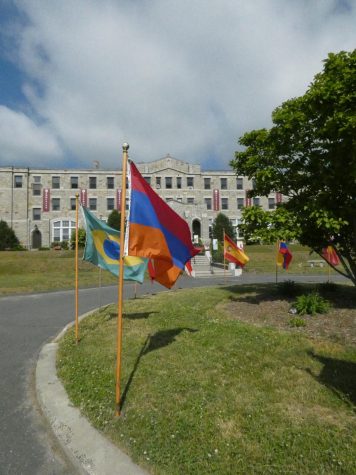AP Exams Op Ed
May 19, 2020
In response to the coronavirus pandemic, the College Board has made the unprecedented decision to administer its Advanced Placement exams in a 45-min online format as opposed to the standard written format that ranges between three to four hours per test. While this change makes it possible for AP students to showcase what they’ve learned despite the necessity of social distancing, the stringent exam time poses an inconvenience to MacDuffie’s international students and places a student’s opportunity to obtain college credit in the outcome of one or two questions.
Furthermore, the cost of these revised Advanced Placement exams remains the same even though the College Board no longer has to produce the typical printed exam packets. I appreciate that the College Board has expressed their willingness to refund students, but those who have been working diligently all year for the chance to fulfill a distribution requirement in college have no choice but to pay $100. This is still much cheaper than the cost of the college course and I’m sure increased server use is costly for the College Board, but I find it hard to justify paying $100 for a 45-min online exam.
With this being said, many students, including myself, are not able to receive AP credit on their transcript if they choose to not take the AP exam. Not only is taking the exam required for MacDuffie’s AP courses, but it is also a necessity for students seeking to raise their grade point averages, as an A+ in one of these courses is considered a 5.0 on the 4.0 GPA scale. Thus, juniors who wish to maintain a high GPA to better their college admissions chances and seniors who need to report consistent grades to their colleges technically don’t have the option to refund their exams.
Additionally, I believe domestic and international students alike will be disadvantaged by the 45-minute length of the exams, as this short duration puts students at risk for being tested on a concept they have not sufficiently studied. While the AP exams normally allow a certain margin of error and test students on a wide variety of concepts, the revised exams—especially those for humanities courses—will only cover a small portion of a course’s curriculum.
Students may feel like they are advantaged by this aspect of the exams, but it means that their ability to skip a semester-long college course is based on their answer to one or two questions. Math and science exams will be able to incorporate multiple units in their free response questions, but the humanities exams are not as fortunate; their document-based questions will require students to apply their knowledge of only one period of history. Therefore, a student may have a very strong grasp of the majority of their class’ material, but still fail the exam because they happened to be tested on the only topic they were unfamiliar with.
Although I am not inconvenienced by the revised exam times, the same cannot be said for most of my classmates, who will have to take their exams during the early hours in the morning due to their time zones. I understand that the College Board had to standardize the exam times in order to prevent cheating and chose a time that would be convenient for all of the nation’s time zones, but this adds yet another element of difficulty for MacDuffie’s large international population. For students currently living in East Asia, their performance on AP exams could be negatively impacted by the fact that they are testing at 1 or 2 in the morning. If the College Board had scheduled the exams just two or three hours earlier, international students would be on a more level playing field with their domestic counterparts.
Having spent the past few weeks weighing the pros and cons of the revised Advanced Placement exams, I’ve concluded that this change is the best compromise that the College Board could have made given the circumstances. I appreciate that many colleges are willing to accept credits from these exams despite their flaws, but I wish high schools could exercise the same leniency for students who prefer not take AP exams this year due to the changed format.



